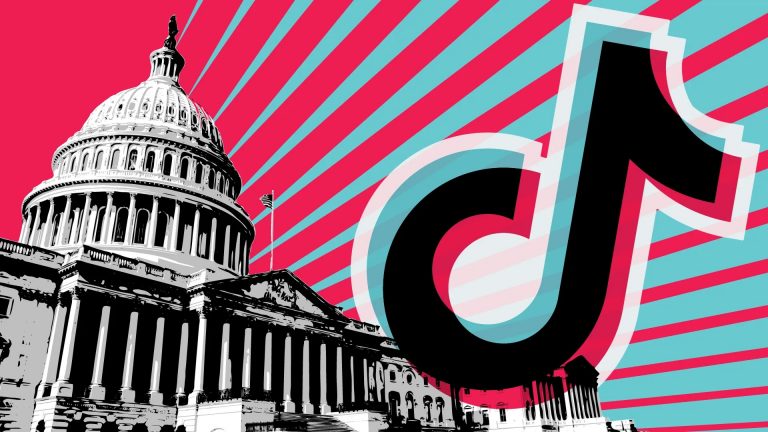
TikTok, the wildly popular social media app owned by Chinese tech firm ByteDance, finds itself at a critical juncture in its fight to remain operational in the United States.
Facing the prospect of a nationwide ban under the newly enacted Protecting Americans from Foreign Adversary Controlled Applications Act, TikTok is pursuing two avenues for survival: a legal appeal to the U.S. Supreme Court and an apparent outreach to President-elect Donald Trump, who has had a complicated history with the platform.
The legislation, signed into law earlier this year, effectively gives TikTok an ultimatum to divest its Chinese ownership or be banned by January 19, 2025. Under the law, Apple and Google would also be required to remove TikTok from their app stores, effectively cutting off the platform’s 150 million U.S.-based users. This two-pronged pressure has forced TikTok to explore both legal and political strategies to avert a shutdown.
Register for Tekedia Mini-MBA edition 19 (Feb 9 – May 2, 2026): big discounts for early bird.
Tekedia AI in Business Masterclass opens registrations.
Join Tekedia Capital Syndicate and co-invest in great global startups.
Register for Tekedia AI Lab: From Technical Design to Deployment (next edition begins Jan 24 2026).
The Supreme Court Appeal
TikTok’s first course of action is a direct appeal to the Supreme Court, asking the justices to block the law. In its filing, TikTok’s legal team called the legislation an “unprecedented speech restriction” that would shutter one of America’s most vibrant platforms for political discourse, artistic expression, and commerce.
“The Act will shutter one of America’s most popular speech platforms the day before a presidential inauguration,” TikTok’s lawyers wrote. They also argued that the law violates the First Amendment, urging the Court to subject it to the strictest constitutional scrutiny.
TikTok highlighted the platform’s significant role in fostering free speech and economic opportunity in the U.S.
“Small businesses relying on TikTok could lose over $1 billion in revenue in just one month, while creators face nearly $300 million in lost earnings,” the company said in a statement posted on its X account.
The issue is remarkable, not only for TikTok but also for the broader tech industry, as the Supreme Court’s decision could set a precedent for how the U.S. government regulates foreign-owned platforms.
Turning to Donald Trump
On the same day it filed its Supreme Court appeal, TikTok CEO Shou Zi Chew met with President-elect Donald Trump at Trump’s Mar-a-Lago resort in Palm Beach, Florida. The meeting suggests that TikTok is also pursuing a political strategy to survive the looming ban.
Trump’s relationship with TikTok has been anything but straightforward. During his first term as president, Trump aggressively pushed for TikTok’s ban, citing national security concerns tied to its Chinese ownership. However, those efforts were thwarted by federal courts.
In a surprising U-turn during his recent presidential campaign, Trump came out against the legislation now threatening TikTok, which was passed by Congress and signed into law by President Joe Biden. Trump’s opposition has been linked to his increased popularity among younger voters, many of whom are avid TikTok users.
When asked about the app on Monday, Trump struck a more conciliatory tone. “We’ll take a look at TikTok,” he told reporters, adding, “You know, I have a warm spot in my heart for TikTok,” citing his strong electoral performance among young voters.
This pivot marks a significant shift for the President-elect, and TikTok’s overture to Trump could be an attempt to capitalize on this newfound goodwill. Trump’s return to the White House could provide TikTok with a potential ally—or at least a reprieve from its immediate legal challenges.
The Crossroads of Tech, Politics, and National Security
TikTok’s twin strategies, seeking relief through the Supreme Court while simultaneously courting Trump, underscore the precarious position the company finds itself in.
The legislation that now threatens TikTok’s survival has been justified by its proponents on national security grounds. Lawmakers have expressed concerns that TikTok’s parent company, ByteDance, could be compelled to share sensitive U.S. user data with the Chinese government, a charge TikTok has repeatedly denied.
The U.S. Court of Appeals for the District of Columbia recently upheld the law, dismissing TikTok’s arguments about its compliance with U.S. data security laws. The ruling left TikTok with only two viable paths forward: convincing the Supreme Court to block the legislation or persuading Trump to intervene politically once he assumes office.
The Economic Impact
The potential ban isn’t just a legal and political issue, it’s also an economic one. The app has become a major platform for small businesses, independent creators, and artists, generating significant revenue and opportunities across the U.S.
A ban could have devastating consequences. For small businesses, TikTok is a vital marketing tool, offering direct access to millions of consumers. Content creators, many of whom rely on the app for their livelihood, stand to lose a significant source of income.
Against this backdrop, TikTok’s fight is more than a struggle for its own survival, it’s believed to be a case that could redefine the boundaries of free speech, economic opportunity, and national security in the digital age.
With its Supreme Court appeal pending and Trump’s stance yet to solidify, TikTok has set the stage for a high-stakes showdown that will likely shape the future of tech regulation and U.S.-China relations.



